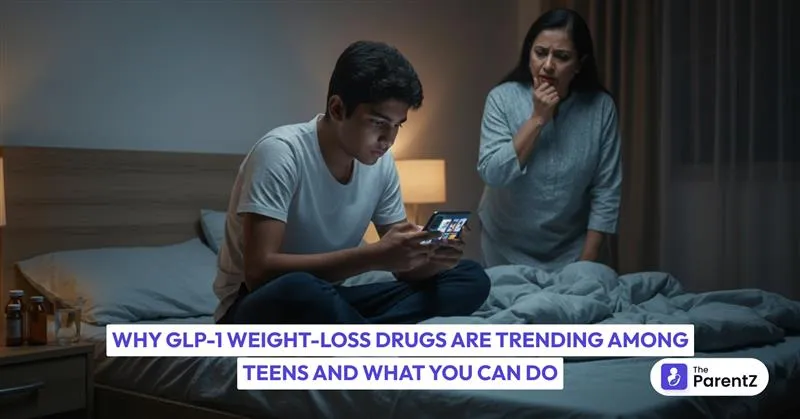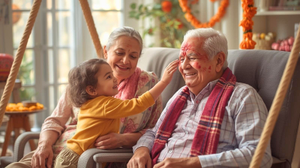The phones are buzzing, the social feeds are flooded, and suddenly, names like Ozempic and Wegovy are popping up in almost every “For You Page” (FYP) on TikTok or Instagram. If it feels like GLP-1 weight loss drugs are being talked about all around, you’re not alone. In fact, many parents are facing the same worries as teens start asking questions or even expressing interest in these viral medications.
This is not just another online trend; this is a health issue that affects families. So, let's discuss the key facts you need to help your teen handle this complex topic.
Why Are GLP-1 Drugs Suddenly Everywhere?
GLP-1 drugs aren’t new, but their fame has exploded thanks to social media. Influencers, celebrities, and everyday people are posting before-and-after photos and sharing stories about dramatic weight loss. The message is quick: lose weight fast, feel great, and get plenty of attention online.
The reality is more than meets the FYP. GLP-1s, which include brands like Ozempic, Wegovy, and Saxenda, are medical treatments developed mainly for people who have diabetes and certain obesity-related health conditions. While they do help some users lose significant weight, there’s much more to their story than social media posts reveal.
What GLP-1 Drugs Actually Do
GLP-1 drugs mimic natural hormones that affect blood sugar and appetite. They help people feel fuller, reduce cravings, and slow digestion, leading to weight loss over time.
For people who really need help managing obesity or diabetes, these medications can be life-changing. But doctors are clear: they’re not “easy fixes” and are not meant for casual weight loss, especially not for young people without medical reasons.
Why Teens Are Interested
Teens today face major pressure to look good online, fit in, and keep up with what they see on social media. With more than 14 million children and teens affected by obesity in the United States alone, it’s no wonder that some want whatever promises a quick result.
Social posts make it look simple: get the shot, lose the weight, and life gets better. And hearing about celebrities or even parents using these drugs makes it seem normal or safe. But most of these posts skip over the actual risks, challenges, and medical realities.
The Real Risks and Complications
GLP-1 drugs can cause several side effects, including nausea, upset stomach, headaches, and sometimes even rare issues like pancreatitis or muscle loss. Some users report mood changes or a “flat” feeling, where they don’t enjoy things as much as before. Doctors still have questions about long-term effects, especially in teens, whose bodies are still developing.
There’s also concern about mental health. Some studies show a slightly higher risk of depression and anxiety for some people using GLP-1s, though research is mixed. These drugs might help some patients feel better by quieting “food noise” (constant thoughts about food), while others could feel more down or less engaged in life.
Most importantly, stopping the medication usually means the weight comes back, which can be tough emotionally for teens who already struggle with their bodies. Experts warn about the psychological fallout and possible stigma, both from losing weight and from not losing it.
Access is another big issue. Some kids might get prescriptions too easily, or even access non-prescription drugs from unregulated sources online. This is extremely risky and should never be encouraged.
How to Talk to Teens About GLP-1s
Start by being a safe, calm space. If your child asks about GLP-1 drugs, or you notice them watching content about it, invite open conversation. Ask what they’ve seen and what they think about it.
Explain in simple terms that these medications were created to help certain people with medical problems, not as a shortcut for weight loss or for a certain “look.” Let them know that every medication, including GLP-1s, comes with risks, and it’s not just the quick success stories they see online that matter.
Remind teens that health and happiness do not depend on looking a certain way or being a certain weight. Body positivity and self-acceptance matter just as much as health. Most importantly, stress that nobody should be pressured into taking medical treatments because of online trends or peer pressure.
What If a Teen Really Needs Help?
If your child struggles with obesity or other health problems, or if you see signs of body shame, unhealthy eating, or deep sadness, reach out to your doctor or a specialist who knows teen health. Safely managing weight and health should always be guided by experts, never by what’s popular online.
Treatments like GLP-1 drugs may be part of care plans for some teens, but only when lifestyle changes like healthy eating and exercise aren’t enough, and always under medical supervision.
Conclusion
Social media isn’t going away, and neither are trends like GLP-1 drugs. But the best thing parents can do is keep talking. Stay calm, share real facts, and remind kids that everyone’s body is unique and worthy of respect and care.
When teens are curious, don’t shut the door; welcome their questions. Talk to professionals, use trusted sources, and never, ever follow rumors or try risky shortcuts.





Be the first one to comment on this story.